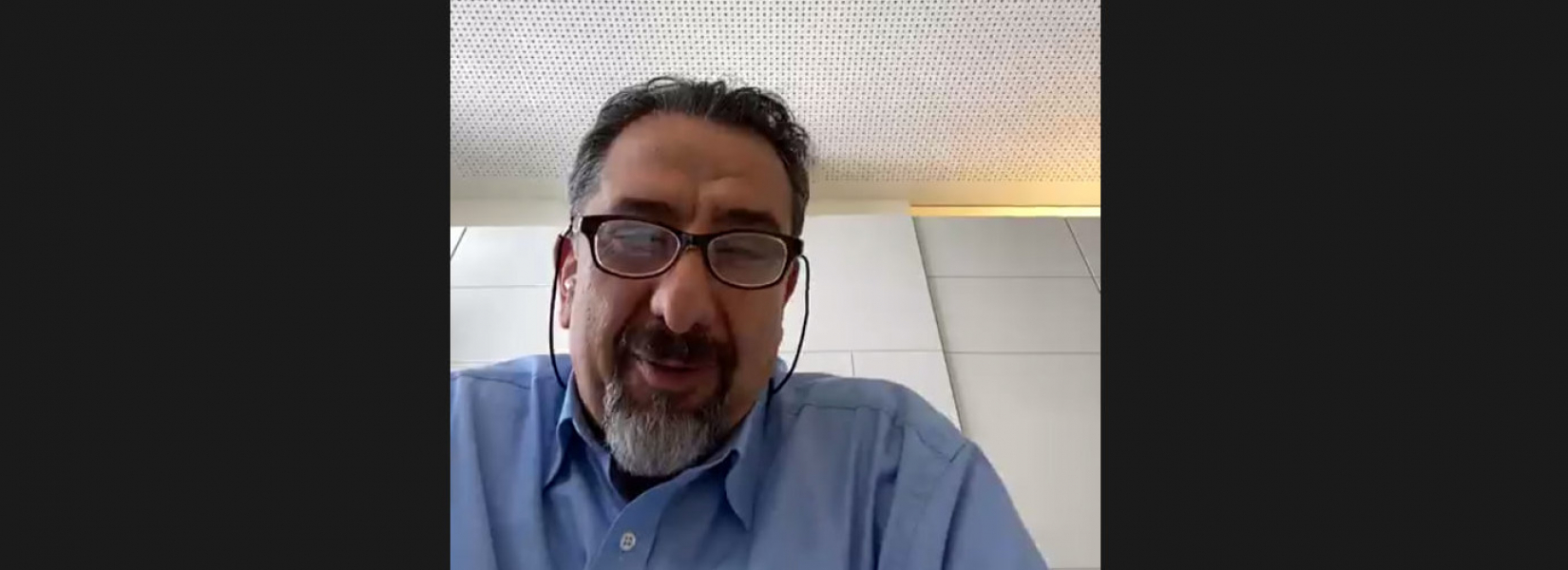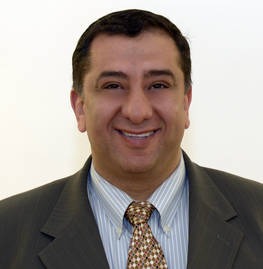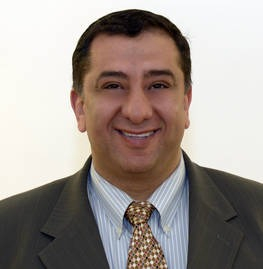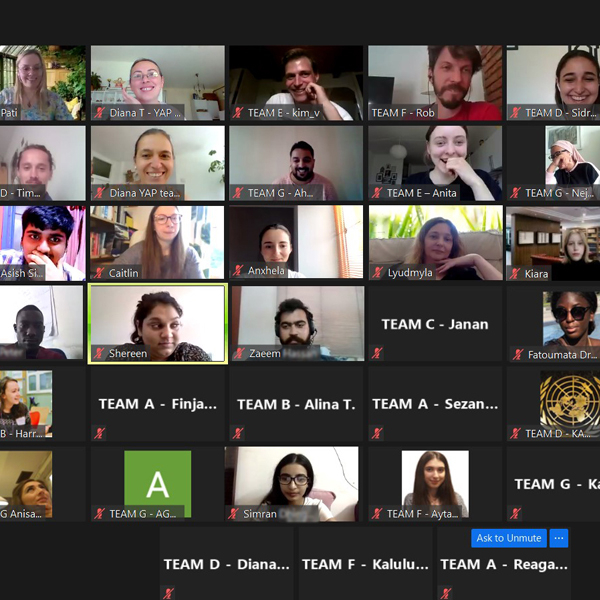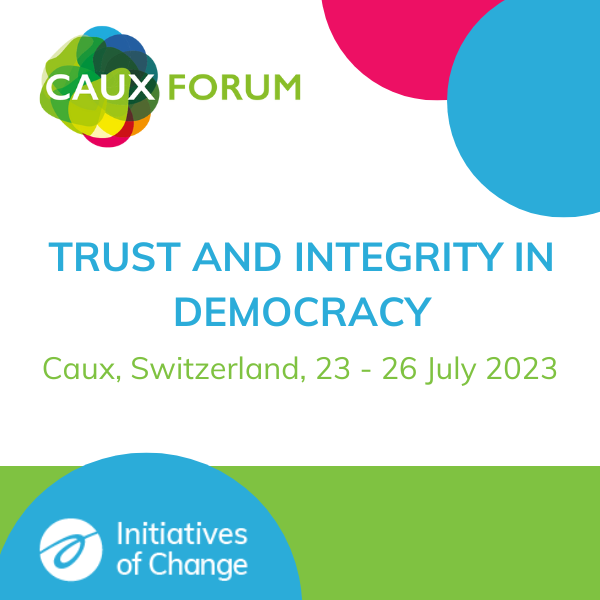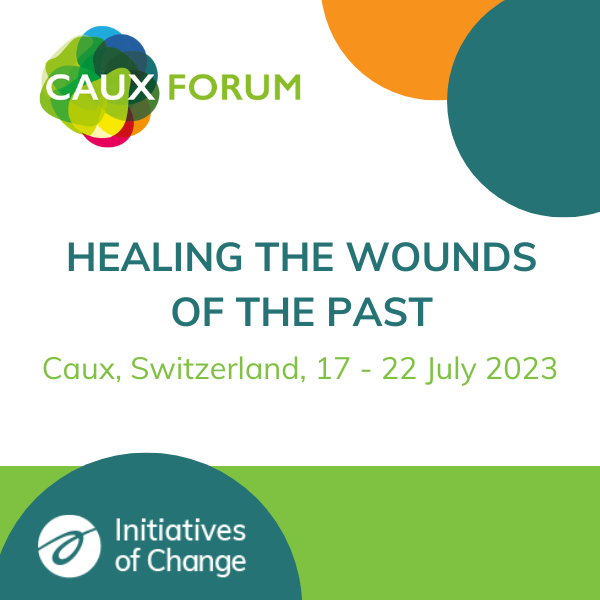Mohammed Abu-Nimer: Dialogue – Weaving peace into the fabric of society
Tools for Changemakers 2020
19/09/2020
Mohammed Abu-Nimer is Professor at the American University’s School of International Service in International Peace and Conflict Resolution in Washington DC and a Senior Advisor to the International Dialogue Centre (KAICIID). He is an expert on conflict resolution and has been facilitating dialogues for 30 years. He has been one of the main faculty of the Caux Scholars Program since 1993 and was a speaker at Tools for Changemakers in July 2020. He agreed to tell us more about the role dialogue plays in building sustainable peace.
Peace-building runs in Professor Abu-Nimer’s blood: for many years his grandfather was a mediator in his community. He experienced his first dialogue at the age of 19 when he started university. At that time he thought dialogue was a form of political activism. He discovered that while political activism and dialogue both aim at change, dialogue does it by building relationships, enhancing our understanding of ourselves and others, and finding common ways to bring that change, rather than through confrontation, blame or shame. Since then, he has been applying dialogue to resolving interfaith, interethnic and interracial conflicts all over the world.
What is dialogue?
Dialogue, he says, starts with finding commonalities with others that enable us to see them as humans and build a relationship with them. However, he insists, this is not the most important step. The next, and more difficult, step is to explore the differences. ‘We use our commonalities to construct a web of relationships that allow people to solve their challenges and differences peacefully,’ he says. ‘But it’s not only relating to the other, it’s answering the question of what we can we do together to address the issues.’ Dialogue has the power to develop concrete strategies to bring peace in the community.
No justice, no peace
Peace is impossible without justice, Abu-Nimer continues. ‘For African American and non-white people in the United States, for example, there can be no full reconciliation with the dominant political system, and with the community that supports it, without structural changes.’ Dialogue can contribute to structural change by making its participants ‘realize that there are many ways to get to justice, including political activism, boycott and all the other techniques of peace and non-violent resistance’.
Although dialogue is not the only gate to peace, it makes peace sustainable. Structural change alone is often not sufficient. In South Africa, for instance, the abolition of apartheid led to a huge shift in the system, but this didn’t stop racial segregation, cultural violence and racial biases. ‘You can have a structure that is fair and just, but if that’s not accompanied with dialogue and with a culture and practices of peace, there is no guarantee that peace will be sustained. If anything happens (such as a natural disaster or increased economic hardship), people may revert back to violent conflict.’ Dialogue promotes a deeper kind of peace because it builds peace at the individual level. ‘Dialogue is the most powerful tool for the prevention of violent conflict. You will always have conflict, but dialogue can prevent the violence of it.’
Fostering a culture of dialogue
The International Dialogue Centre (KAICIID), where Abu-Nimer is a Senior Advisor, aims at building a culture of peace. He wants dialogue to become part of the curriculum, taught to children as an essential skill, like crossing the road safely. Everyone needs to ‘master some of the basic tools of dialogue’ if we are to create a society that is less cruel, racist and xenophobic. In a society where we were all well-versed in dialogue, we would give other people the chance to say what they want without judging them and labeling them. ‘If we don’t institutionalize dialogue, much of our efforts to build peace will be lagging.’
Through dialogue, we not only encounter others, but also ourselves, says Abu-Nimer. ‘Dialogue deepens our understanding of ourselves, of what we want and what is important for us. This changes us and makes us grow as humans. Dialogue has helped me to be more patient, to appreciate everyone’s perspective and to avoid as much as possible judging other people. It also allows me to hear the grievances of others in a clearer way and enables me to understand myself better.’ By practising dialogue, we become more aware of how limited our awareness of the world is and how we depend on other people to achieve what we want.
Where to start?
He provides two final pieces of advice for anyone who finds themselves involved in a conflict, whatever it may be. First: ‘Ask yourself what your role in the conflict is and become aware of it.’ Second: ‘Understand that a conflict is an opportunity for change. It is an attempt to deal with relationships of dependency and interdependency.’ Identifying what the other party wants and ‘how you can help them get what they want without losing yourself and what you want’ will help you find a way to solve the conflict peacefully and to grow.
Read more on Tools for Changemakers 2020
